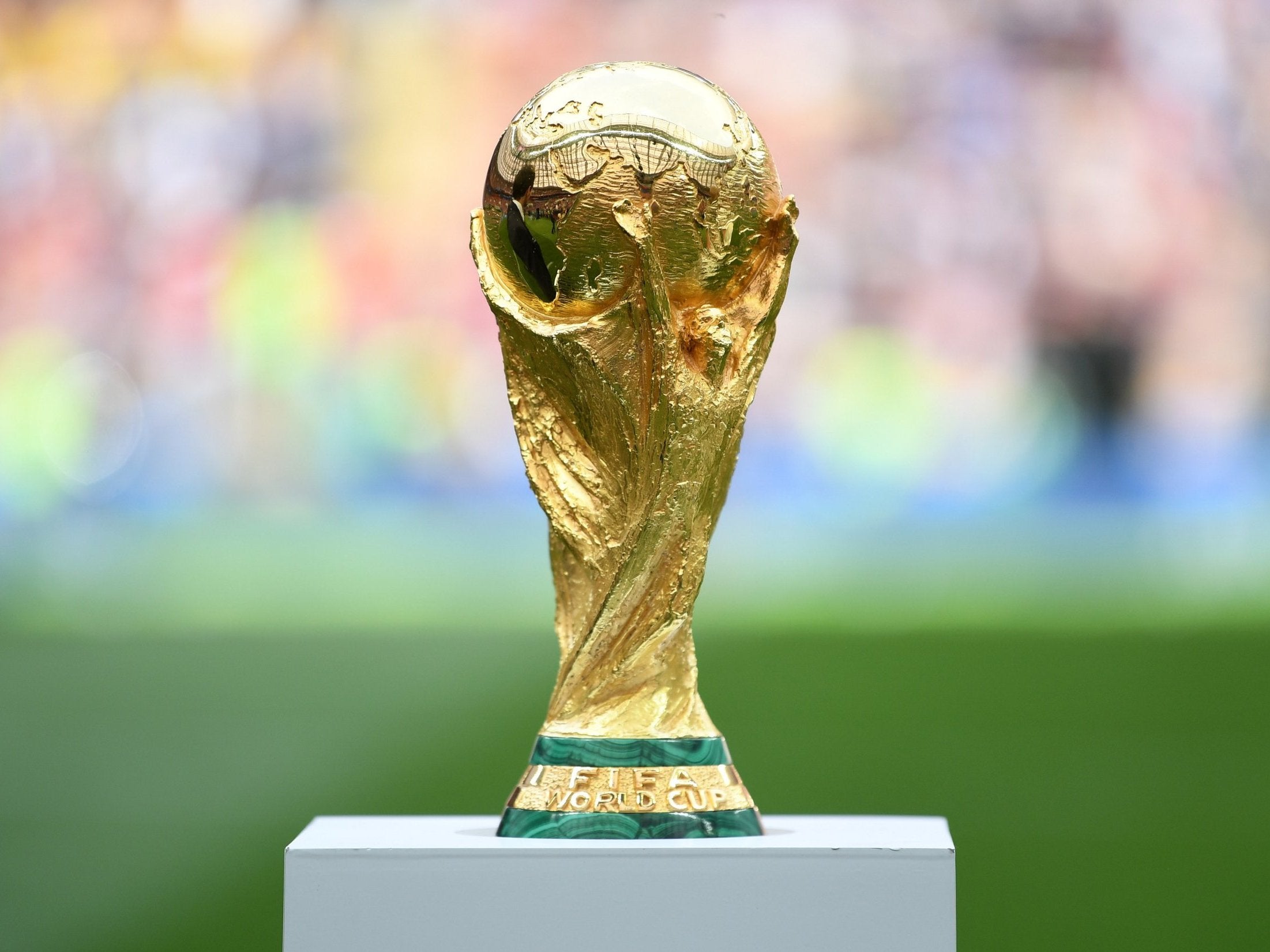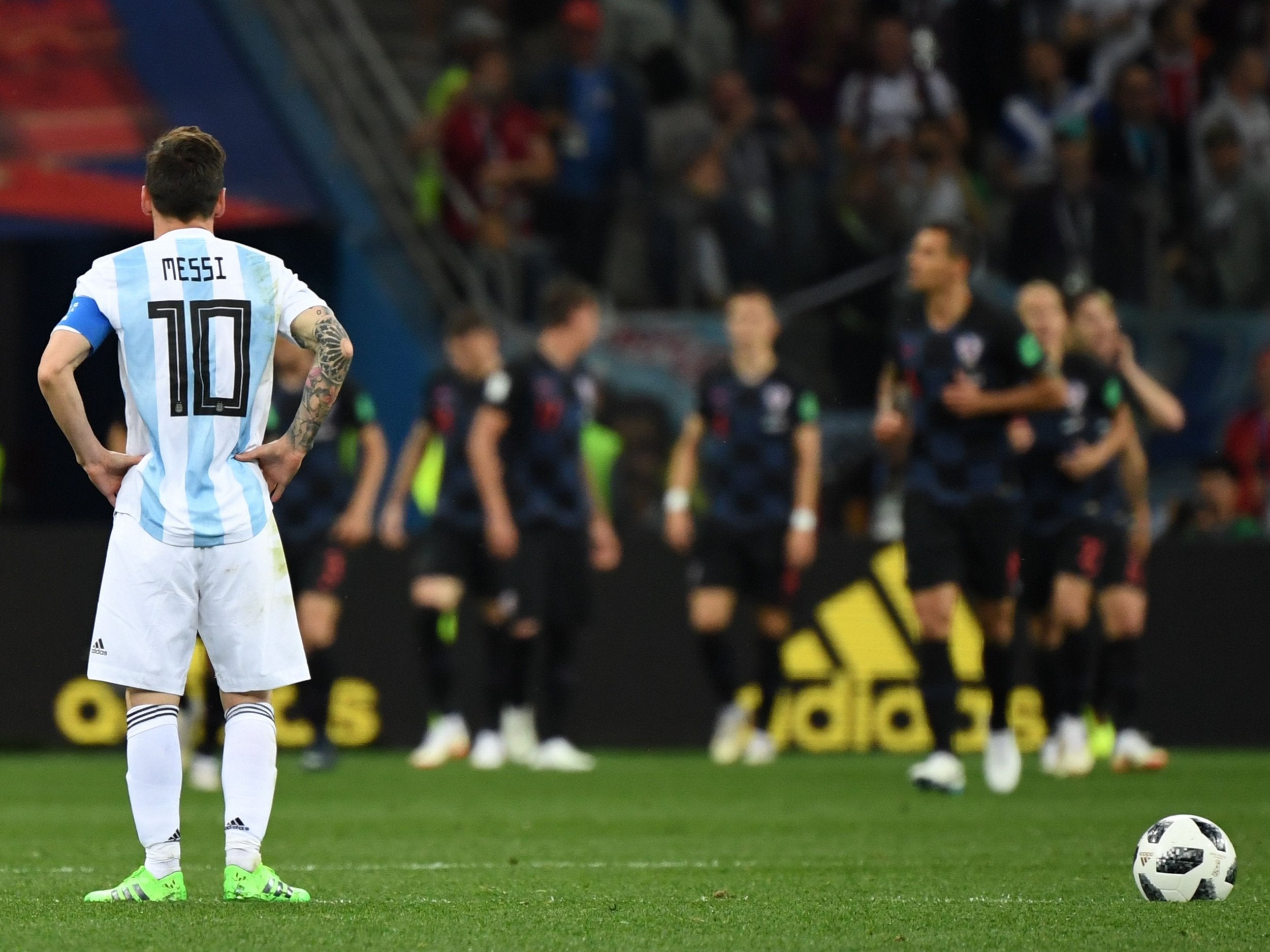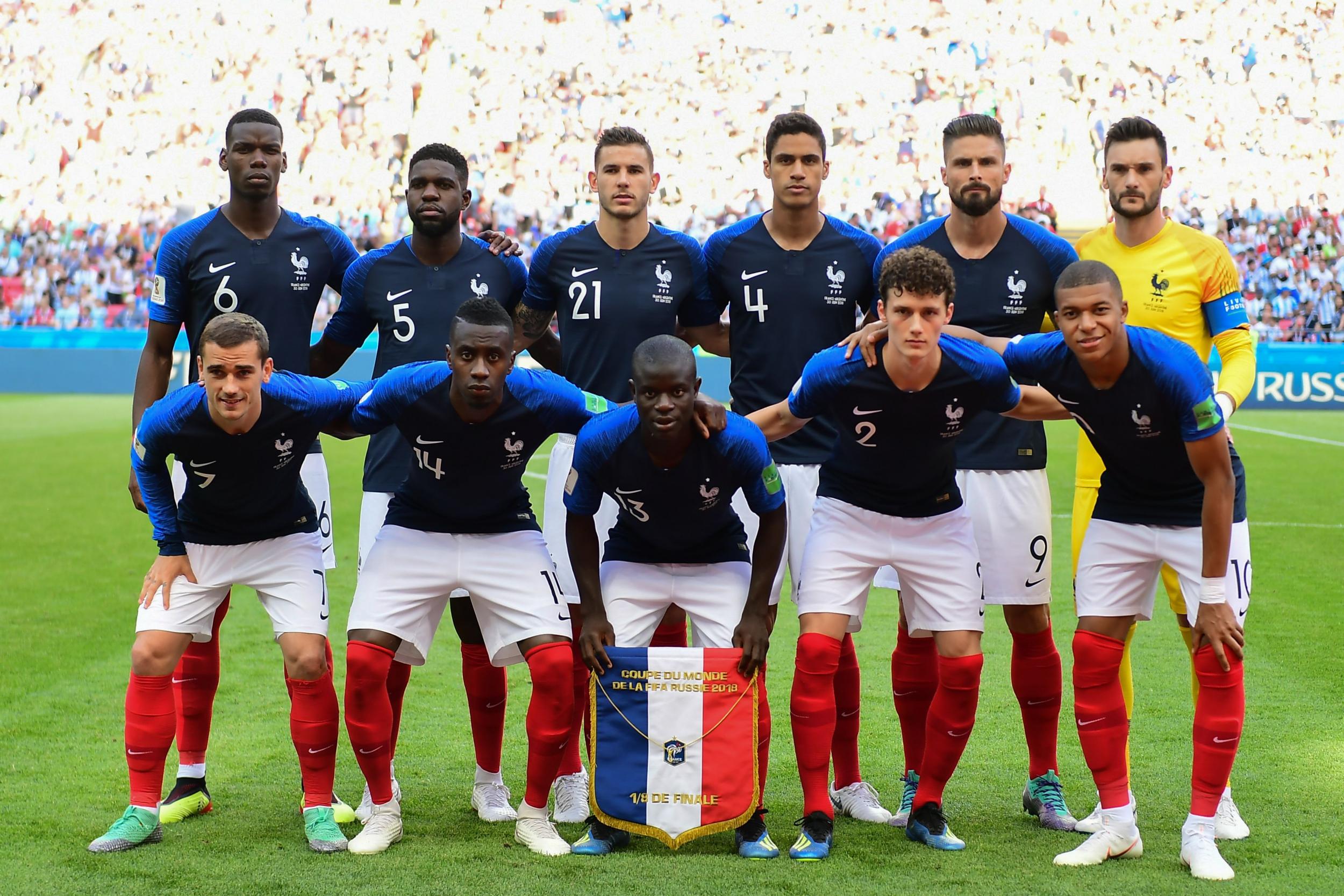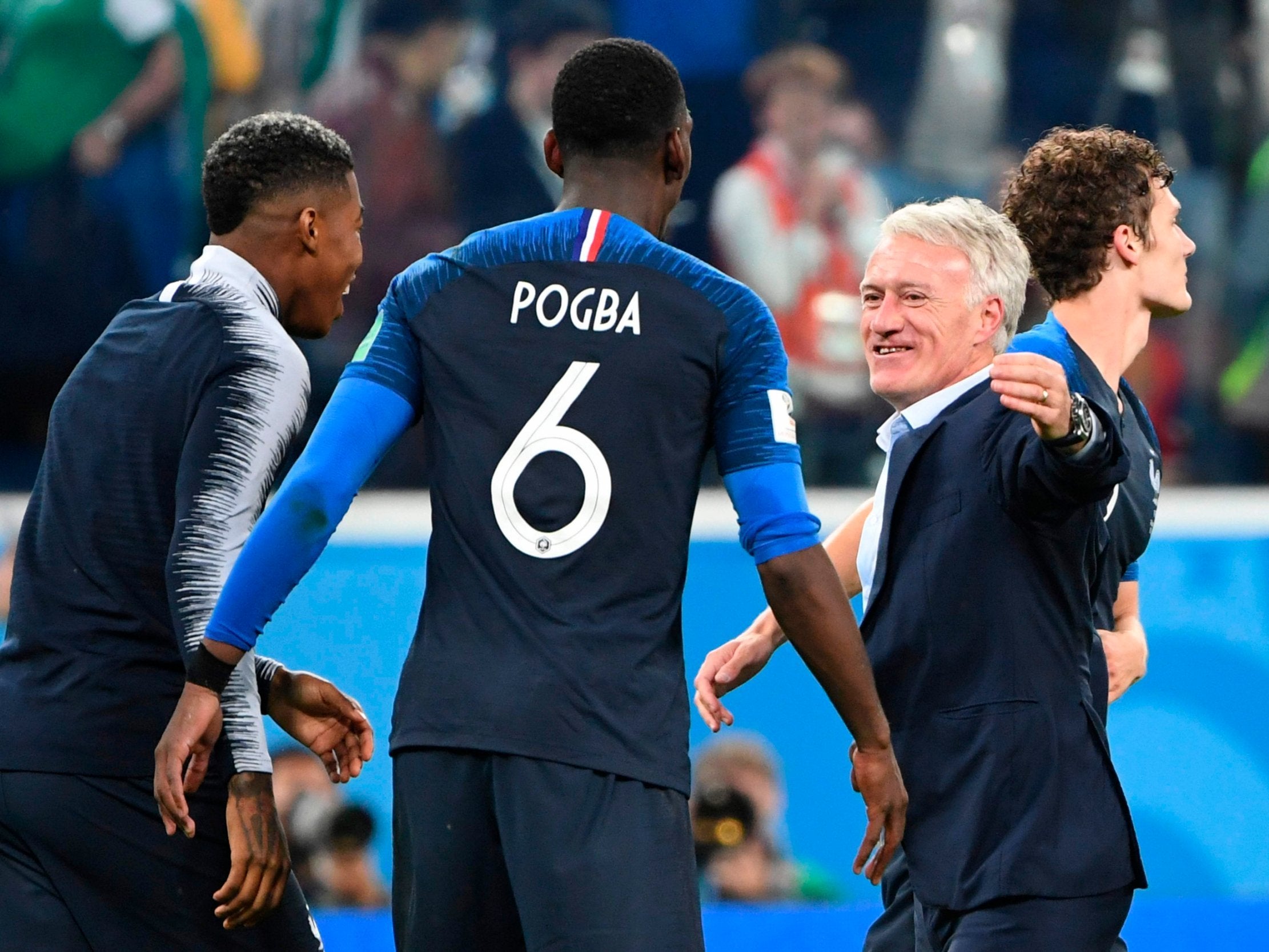World Cup 2018 boasts a final of differing styles, aims and ambitions - but it remains the biggest event in sport
Who can rise to be this year’s 1998 Zinedine Zidane, or fall to be 2006’s Zinedine Zidane; stride to be 1958 Pele, or stumble to be 1994 Roberto Baggio?
While France are preparing themselves for the prize required to really mark a generation, the Croatia players are primed for the kind of opportunity that only comes along once in a lifetime.
This is the primary deference between the two sides at Moscow’s Luzhniki Stadium on Sunday, and that is the eternal difference of a World Cup final.
As the sporting occasion that goes beyond so many more borders than any other, and captures the imagination of more people than any other, it also has a meaning way beyond itself. The fact this truly global fixture only takes place every four years - so that so much has to fall perfectly for the privileged few who get to play in it to actually make it there - affords it a prestigiously rare gravitas; an exhilarating exclusivity.
It is a uniqueness so appropriately reflected by that gloriously unique trophy itself, both in aesthetics and design. Those two golden arms “stretching out to receive the world... at the stirring moment of victory” - in the words of designer Silvio Gazzinaga - are so instantly stirring, and so immediately state what it’s all about. This, well, means the world, and it does not come into reach that often. All of this was still best captured by Hugh McIlvanney on the eve of the 1986 showpiece.
“Earlier days offer sudden death, but this is the only one that offers immortality.”
The 22 selected to start on Sunday will be aware they join an honoured class of players; they’ll be aware this is something some of the very best never got to experience, but also where others made themselves the best. This is a match that really echoes in football eternity.

That very awareness can itself further influence the players, and the game. Who can rise to be this year’s 1998 Zinedine Zidane, or fall to be 2006’s Zinedine Zidane; stride to be 1958 Pele, or stumble to be 1994 Roberto Baggio?
That is again the difference of the occasion, where single moments will resonate for so many years.
Yet the reality is that this a final with a difference to go with a tournament with a difference, one that many might say doesn’t feel like a true World Cup final, but that gives it an exclusivity and rarity all of its own.
We have never before seen a final with such a contrast between the two teams in terms of status, size, history, aims and perception.
It is by now well known that Croatia are by far the smallest country in terms of population to reach a World Cup final since Uruguay 1950, but that was in a round-robin structure and when Uruguay had already been champions but opponents Brazil hadn’t. You really have to go back to 1962 and Brazil’s 3-1 over Czechoslovakia for any final remotely similar, and that was in a very different football world, where we certainly didn’t have countries as massive as France mass-industrialising talent production.
If the French do win their second World Cup, they will be the third successive side to do so following such far-reaching coaching revolutions after Spain and Germany. That itself would offer a rather grandiose statement on the state of international football, and how it’s maybe gradually becoming sadly subject to the same economic forces as the club game. It will be all the more pointed that such an unpredictable World Cup ends with something so predictable.
That is why a Croatian win would really be one for the ages, one to really evoke the special spirit of the game. That is why a Croatian win would be so energising, since they would become the World Cup’s first ever truly shock winners and at a time like now… but also why this final is being seen as such a mismatch; as if it’s increasingly inevitable that France will show their clout and Croatia will run out of energy to show theirs.
There’s also the worry that Croatia are not just pushing the limits as regards population, but also physical capability, given that they are similarly the first team to reach a final having gone to extra-time in three previous knock-out matches.
This might be a game too far, especially against a France that have not had to go any further in any of their knock-out games. They have seen them all out with an assured control.
France are likely to just have too much, while it will be just one match too much for Croatia. There’s a feeling reality will assert itself on this most dreamed-of sporting stages.
It’s just that reality doesn’t always go expected, and more anticipated showpieces between two historic heavyweights haven’t always been exciting. They’ve often fallen far short. Only one of the last seven finals has seen more than two goals, and the average per game in that time has been 1.4, with three 1-0s and one 0-0.
The issue is that the gravitas and prestige of the fixture are naturally accompanied by a tension and nerves that can gradually strangle it and make the match fractious rather than frenetic. That however is also why the different dynamics of this final can make for a game with a difference; where this deep contrast between the sides can become a positive rather than a negative, and make it a compelling contest in a way we’ve not seen in decades.

Croatia will not be burdened by that weightier expectation of an Argentina, after all, but might instead be excited by opportunity. They know they’re a mere one game - one match where anything can happen, where one unexpected moment can have unending meaning - from the kind of glory most countries never imagine they can get near.
Now try to imagine the feeling of such a thought, the hope of it. This is something else so special about the World Cup final.
The carpe-diem mood of the Croatians might be just enough to release them from the restraints of fatigue, and ensure this isn't one more match too far, but one other match that takes them further. It might thereby release the game, even against a team as exceptional as shutting everything down as France.
A further factor is that winning this match is for the French a necessity, whereas for Croatia it’s a novelty. That again might just be enough to wire this game differently.
Above anything, it puts a very distinctive and deep pressure on France.
They are presented with another final everyone presumes they should win, after the defeat of Euro 2016 to Portugal but against a very awkward opponent.

This thereby isn’t an “opportunity” for them in the way it is for Croatia, but may instead become an occasion with oppressive expectation. How they handle it is another hugely enthralling element to this match, and maybe it’s most compelling. France could become great failures, rather than the great generation they should be. Such a circumstance can distort a game like this even more, especially combined with the distinctiveness of the fixture.
It can be enough of an influence over such a momentous single match so that it means Kylian Mbappe’s frightening superiority over Dejan Lovren is freakishly frustrated, that Raphael Varane’s robustness is just undone by one Mario Mandzukic moment, that Luka Modric finds the space between so many combative midfielders… that all of France’s immense strength in depth feels temporarily shallow.
It is also a referendum on Didier Deschamps’s entire style, and may well be the making and breaking of his entire managerial legacy.

Since he has so consciously and conspicuously compromised France’s attacking ability for the purpose of winning, it means he absolutely has to win. It will otherwise bring a lot of talent, about an utter waste of talent in more than one way.
This final can then go one of only two ways for Deschamps. He will either have fatally inhibited their quality, or instilled them with the resilience to do what is required.
It’s still difficult not to think that France have too much of the latter, that they’ve grown since the “pain” of Euro 2016 , and have gradually developed more muscle and maturity. It’s difficult not to think that, even if Modric and Ivan Rakitic get on the ball, France have too much presence in the middle to prevent them doing damage and too much nous out wide to prevent Croatia’s wing-backs creating.
It’s still difficult to look past a French win.
It’s just it’s still one match, even if it’s the most prestigious match of all.
Join our commenting forum
Join thought-provoking conversations, follow other Independent readers and see their replies
Comments